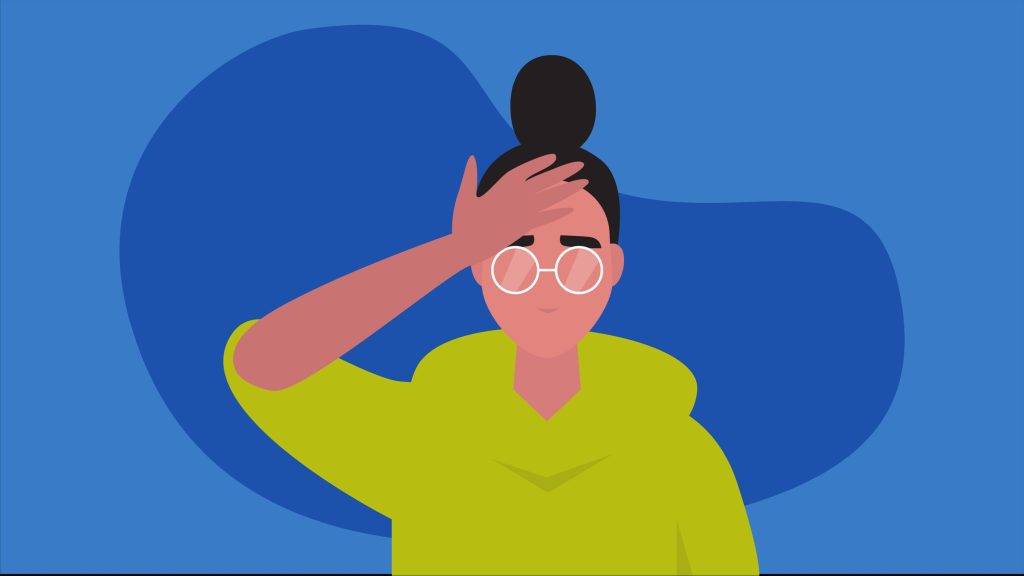Innovative ways to manage the migraine naturally.
The excruciating headache pain associated with migraines is not unknown to all fo us, but did you know that one in seven people also suffer from them. Out of every four migraine sufferers are female, and that migraine is the leading cause of disability among youths?

You’d think that modern medicine would have found a cure for migraine by now given how widespread it is. Also, how many people are affected worldwide, but alas, this is still a problem.
There are many various medications that doctors can recommend to treat or prevent symptoms. However, there are also several highly effective non-drug alternatives that can assist manage this crippling condition.
Drug free approach for migraine
There may be valid reasons to avoid drugs if you can, despite the fact that they can be a useful tool.
Due to adverse effects, some medications are not safe to take during pregnancy or while nursing. Also, some have negative drug interactions with those used to treat other conditions. This means that not everyone can take migraine treatments.
It makes perfect sense to investigate alternative methods to lessen the suffering of migraine episodes given that they can be pricey and non-drug alternatives can offer effective control over the illness.
Let’s go over some of the most important methods for treating migraines naturally, as determined by the most recent scientific findings.
Discover your occurrences
Most likely, you’ve already heard that certain things might trigger migraine attacks in certain people. However, do you know what it is that triggers your migraines? The first step in creating non-drug measures to minimise your exposure and lessen migraine attacks is being aware of what for you turns the switch.
Stress and anxiety, irregular sleep patterns, menstruation, hunger and skipping meals, dehydration, chocolate, alcohol, excessive caffeine use, loud noises, bright lights, exhaustion, too much physical activity, changes in the weather and altitude, and strong odours and smoke are some of the most common trigger factors.
Although we cannot completely avoid all triggers, knowing your particular trigger and minimising your exposure to it—or attempting to avoid a mixture of triggers—can have a good impact.
Drop some pounds
In addition to the many additional health advantages of losing a few pounds, research have shown that doing so can aid in the avoidance of migraines.
Altering one’s diet may result in weight loss, which may help people avoid migraine attacks. This is due to the possibility that fat could cause migraines in some persons.
Typical instances of meals that can cause migraines include:
- refined meats
- alcohol
- chocolate
- caffeine
By keeping a symptom journal and scanning for patterns, people might attempt to pinpoint potential migraine causes.
Recognize and treat linked conditions
We are aware that conditions like worry, stress, and depression are linked to a rise in migraine attacks. A migraine can be treated and managed by determining whether you have any of these linked conditions and treating them.
Developing natural relaxation techniques can be a useful migraine management tool because stress and worry can be major migraine triggers. Try numerous methods for stress reduction and mindfulness, CBT, or stress management. There are several apps available today for meditation that can be helpful.
More than 80% of migraine sufferers claim that stress is a migraine trigger, according to the American Headache Society. You may experience a reduction in migraine frequency by learning better stress management techniques.
Nerve stimulation devices and acupuncture
Devices that stimulate the central or peripheral nervous system are available and have been shown to have some beneficial impacts on migraine outcomes. Neuromodulation treatments are generally regarded as safe, but keep in mind that not everyone is a good candidate for them. To learn more, consult your physician. If you prefer anything else, acupuncture has shown some encouraging outcomes in some individuals.
With acupuncture, very small needles are injected into specific points on your skin to promote relief from a wide range of medical ailments.
In a 2020 randomised controlled research, it was discovered that manual acupuncture, administered over the course of 20 sessions, was superior to sham acupuncture, administered over the course of normal treatment, in terms of avoiding migraines in patients with a history of episodic migraine without aura. The needles are not put as deeply during a procedure called sham acupuncture.
Nutritional supplements
Natural supplements including magnesium, coenzyme Q10 (CoQ10), and riboflavin (vitamin B2) have been shown to be effective in treating migraines. Once more, discuss with your doctor whether these strategies would be beneficial for you.
It’s crucial to keep in mind that not every intervention for treating migraines will be effective for everyone and that both drug and non-drug treatments should be taken into consideration.
The idea is to educate yourself as much as you can on the condition and spread awareness among everyone who can—not just migraine sufferers themselves, but also their friends and relatives.
Even while we may not be able to eradicate migraine worldwide, by working together, we can raise awareness of the condition and help the local community better manage migraine victims.
REFERENCES:
- https://www.georgeinstitute.org.au/profiles/six-ways-to-manage-migraine-without-drugs
- https://www.healthline.com/health/natural-ways-to-reduce-migraines
- https://www.webmd.com/migraines-headaches/5-ways-to-get-rid-of-headache
- https://www.medicalnewstoday.com/articles/322814
For more details, kindly visit below.